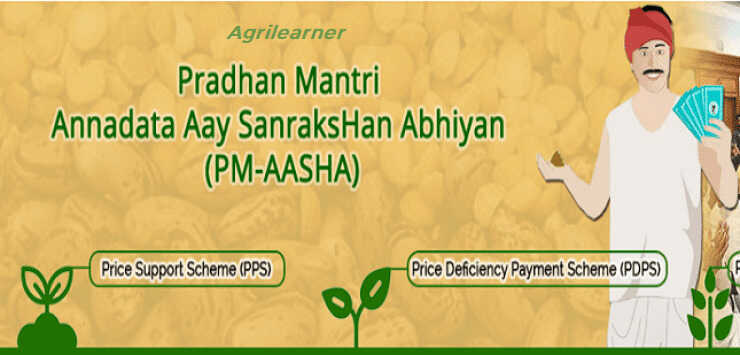New Delhi: The Union Cabinet, led by Prime Minister Narendra Modi, has approved the continuation of the Pradhan Mantri Annadata Aay SanraksHan Abhiyan (PM-AASHA) schemes, designed to ensure remunerative prices for farmers and control price volatility of essential commodities for consumers. The extended scheme, aimed at stabilizing prices and boosting farmer income, will have a financial outlay of Rs. 35,000 crore during the 15th Finance Commission Cycle, up to 2025-26.
In a major move, the government has converged the Price Support Scheme (PSS) and Price Stabilization Fund (PSF) under the umbrella of PM-AASHA, enhancing the effectiveness of price stabilization efforts. The integrated scheme will not only provide farmers with better prices for their produce but also help maintain essential commodities’ affordability for consumers by curbing price fluctuations.
PM-AASHA now comprises four key components: Price Support Scheme (PSS), Price Stabilization Fund (PSF), Price Deficit Payment Scheme (PDPS), and the Market Intervention Scheme (MIS).
Expanded Procurement of Pulses, Oilseeds, and Copra
From the 2024-25 season, the procurement of pulses, oilseeds, and copra under the Price Support Scheme will cover 25% of national production, allowing states to procure more of these crops at Minimum Support Price (MSP). However, for Tur, Urad, and Masur in the 2024-25 season, the government has announced 100% procurement, ensuring full coverage and preventing distress sales by farmers.
The government has also enhanced its existing procurement guarantee to Rs. 45,000 crore, enabling the Department of Agriculture and Farmers Welfare (DA&FW) to procure more pulses, oilseeds, and copra from farmers. This initiative aims to encourage farmers to grow more of these essential crops, thus reducing India’s reliance on imports and moving toward self-sufficiency.
Stabilizing Prices for Consumers
The Price Stabilization Fund (PSF) extension will protect consumers from extreme price volatility in agri-horticultural commodities, including pulses and onions. By maintaining a strategic buffer stock and discouraging hoarding, the government will ensure affordable prices for essential items. The Department of Consumer Affairs (DoCA) will also procure pulses from pre-registered farmers on platforms like eSamridhi and eSamyukti when market prices exceed MSP.
The PSF has been used to stabilize other crops like tomatoes and to support subsidized retail sales of staple products like Bharat Dal, Bharat Atta, and Bharat Rice.
Increased Support for Oilseeds and Horticulture Crops
The Price Deficit Payment Scheme (PDPS), which compensates farmers for the difference between the MSP and sale prices, will see expanded coverage from 25% to 40% of state production for oilseeds. Additionally, the scheme’s implementation period has been extended from 3 to 4 months, ensuring broader benefits for farmers.
For perishable horticulture crops, the Market Intervention Scheme (MIS) has been expanded to cover 25% of production, with an option for direct payments to farmers. To address price disparities in tomatoes, onions, and potatoes (TOP crops) between producing and consuming states, the government will now bear transportation and storage costs, ensuring better prices for farmers while lowering market prices for consumers.





